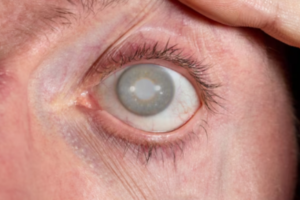Dental implants are a fantastic solution for restoring your smile and improving oral functionality. With proper care, they can last a lifetime. While implants are durable and designed to function like natural teeth, maintaining them requires consistent effort and attention. Neglecting oral hygiene or failing to follow recommended practices after periodontics & implant surgery in Chicago can compromise their longevity.
To help you protect your investment, here are five essential tips to take care of your dental implants.
1. Brush Properly Twice a Day
Brushing regularly is the foundation of good oral health, and it’s especially critical for keeping your dental implants clean and healthy. Implants are resistant to decay, but the surrounding gums and bones are still susceptible to infection and inflammation if proper hygiene isn’t maintained.
Use a soft-bristled toothbrush to gently clean around the implant and crown. Hard bristles can cause damage to the soft gum tissue, so opt for a gentler option. Electric or sonic toothbrushes are excellent choices, as they can effectively remove plaque and debris while being easy to use. Aim to brush for at least two minutes, focusing on all sides of the implant and surrounding teeth.
2. Floss Daily Without Fail
Flossing is just as important as brushing when it comes to oral hygiene, and this is especially true for those with dental implants. Food particles and plaque can accumulate around the implant, particularly at the gumline. Over time, this can cause inflammation and increase the risk of infection, potentially jeopardizing the implant’s stability.
Look for floss specifically designed for dental implants, such as implant-specific floss or unwaxed dental tape. These products are gentler around the implants and gum tissue. To effectively clean the area, wrap the floss around the implant and gently slide it under the gumline to remove debris.
3. Schedule Regular Dental Check-Ups
Routine dental visits are crucial for maintaining the health and longevity of your dental implants. Even if your implants feel secure and there’s no visible issue, a dentist or hygienist can detect potential problems early.
During these check-ups, your dentist will examine the implant and surrounding tissues to ensure everything is healthy. They may also perform professional cleaning to remove any plaque or tartar buildup around the implant area.
Regular visits are also an opportunity to identify signs of peri-implant disease, a condition that can cause bone loss and implant failure. Catching these issues early can make a significant difference in treatment outcomes. So, aim to see your dentist every six months, or more frequently if recommended.
4. Avoid Hard and Sticky Foods
While dental implants are incredibly strong, they are not indestructible. Hard or sticky foods can exert excessive pressure on your implants and crowns, potentially causing damage or reducing their lifespan.
Avoid chewing on hard items like ice, popcorn kernels, or hard candies. Similarly, sticky foods like caramel or gum can dislodge crowns or leave a stubborn residue that’s difficult to clean. If you enjoy crunchy foods like apples or carrots, consider cutting them into smaller pieces to minimize pressure on the implant.
Being mindful of your eating habits can go a long way in protecting your dental implants over time.
5. Use the Right Oral Care Products
Not all oral care products are created equal, especially when it comes to dental implants. Choosing the right tools and products can make a big difference in keeping your implants healthy.
Start with a non-abrasive toothpaste that won’t scratch the surface of the implant crown. Abrasive products, such as gritty whitening toothpaste, can damage the porcelain or ceramic material. Look for formulas labeled as safe for dental work.
When selecting a mouthwash, avoid products with alcohol, as these can dry out your mouth and irritate the gums. Antibacterial or fluoride mouthwashes are ideal for reducing bacteria and protecting the gum tissue.
Conclusion
Dental implants are an incredible investment in your oral health and confidence, but they require proper care to perform at their best. By committing to good oral hygiene habits, scheduling regular dental visits, and using the right tools, you can ensure your implants stay in excellent condition for many years.















